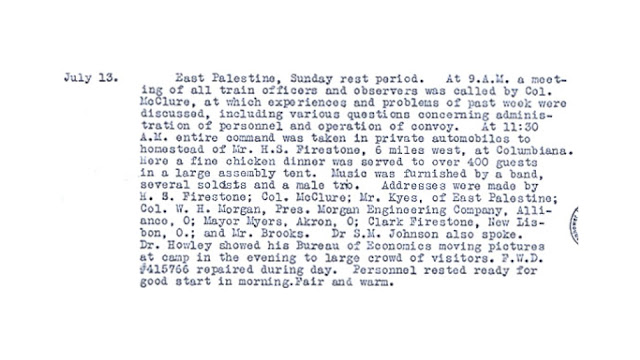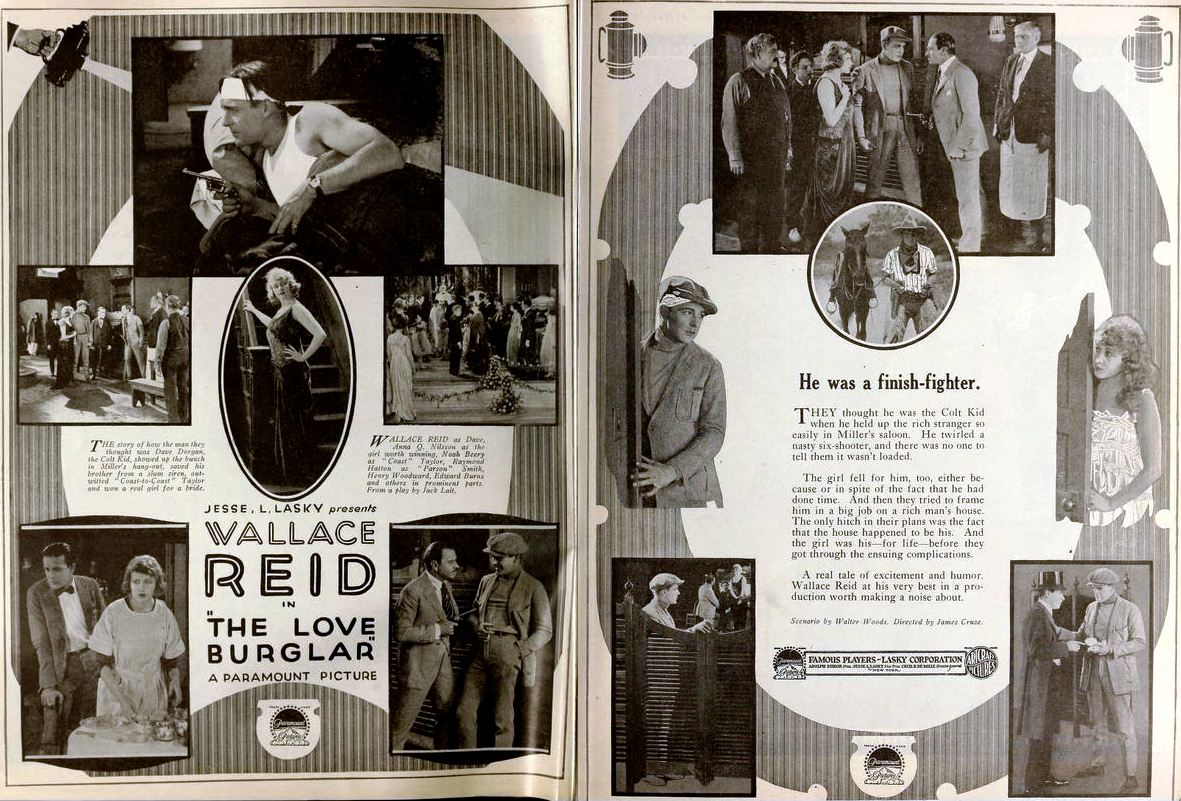American troops near Marfa, Texas, are treated to a picnic in honor of Labor Day, September 1, 1919.
September 1 was Labor Day in 1919, then as now falling on the first Monday of September. The unofficial end of American summer was a day off for most people, including I'd note most local newspapers, and it was celebrated in much the same fashion as it currently is. Foot races and picnics were held in the mining town of Hanna, Wyoming. Motorcycle races were held in Marion Indiana. Massachusetts Governor Calvin Coolidge delivered a speech on labor in Plymouth.
In the case of American solders serving on the border, which was still quite tense, this meant, if they were stationed near Marfa, a lunch served by the American Red Cross.
If they were assigned to the transcontinental Motor Transport Convoy, which was now running several days behind schedule, it wasn't a day off. They traveled from Carson City, Nevada, to Meyers, California
The road was treacherous and the Nevada Highway Department closed the road in the Sierras for the convoy. Motorcycles were used to police the convoy speed and spacing, as well as looking for hot bearings. The convoy went 34 miles in 13.5 hours and its arrival in Meyers was treated as a great success. The Mayor of San Francisco traveled out to meet the convoy.A party that claimed to represent labor was laboring away in chaos on this Labor Day weekend in Chicago. The left wing turmoil going on in Chicago saw yet another Communist Party emerge out of the departed hardcore left wingers of the Socialist Party, when the non English speakers formed their own Communist Party of America.
This is really confusing as there already was a Communist Party of America, that had existed since May. This new one joined the old one rapidly. The English speaking Communist Labor Party would follow within months.
Of interest, the new foreign born Communist Party of America that formed on this day was double the size of the Socialist Party of America, with 60,000 members, and six times the size of the Communist Labor Party, which had 10,000 members. This pretty shows that the leadership of the Socialist Party was more conservative and democratic than the rank and file, which had gone hardcore left.
It also shows that the sentiments of the Socialist were highly influenced by immigrant members who were likely hardcore leftists when they arrived in the country, something that the Communist Party and its sympathizers on the radical left have not really liked to acknowledge. The 1910s through the 1930s were the high water mark of radical Socialism in the US and its interesting to note that this was also the case for Anarchism, although it was waning by the 1930s. In both instances the movements had significant immigrant representation within them and, moreover, representation from certain concentrated areas of Europe where the movements were also strong. It's fairly clearly the case that in those instances they brought radical sentiments with them, rather than acquiring them in the US, although there were certainly native born radicals as well.
All of these movements were on the way out by the 1940s for a variety of reasons, including the fact that they'd been tested with disastrous results in Europe by that time and World War Two caused an economic boost in the country that buried any lingering sympathy for economic radicalism. But in 1919, Communism was untested and on the rise, even if a language barrier caused it to oddly develop in the US, briefly, in a fractured fashion. Even at that, however, it never really had very much appeal for most Americans, including foreign born ones, let alone most American workers.
Workers and the high cost of living were the topic of that day's Gasoline Alley, which was published in the local Chicago newspaper. In a somewhat serious edition of the cartoon, the Reds made their own appearance that day.
It was a day off, of course, for most Americans and that meant not only picnics and races, but trips to the movies, which the movie industry used to introduce new films.
Her Purchase Price frankly had a the type of plot that movie goers of the era loved but which are creepy today. In that film, Sir Derek Anstruther encounters European looking Egyptian slave Sheka while touring Egypt. She learns that she's been raised a slave since taken by a bandit in her youth. So he buys her, after falling in love with her.
Low and behold this disrupts Sir Anstruther's inheritance so the loyal Sheka sells herself to somebody else so that he's not dispossessed. But Sir Derek pursues, and in the meantime her parentage is cleared up and all is well.
Hmmm. . . .
For folks who were bothered by the racial qualities of that one, let alone the moral questions raised by buying your bride in an Egyptian slave market, The Brat was also released on this day in 1919. It featured a a chorus girl known only by that nickname who resists improper advances, resulting in her arrest. The prosecutor's brother, however, is studying the underworld and therefore the judge lets her live in his household so that she can be the subject of study. Well you can see how that one goes. . .
Frankly, that was a bit disturbing as well.
Well, north of the border there was Back To God's Country, in which the daughter of a Canadian woodsman grows up in nature and has a rapport with animals. She falls in love with a Canadian government official and marries him, after escaping the clutches of a bogus Mountie who attempts to rape her and who kills her father. She then travels with her husband on a whaler but the captain turns out to be the rapist in disguise, so she has to escape by dog sled in the Arctic, with her husband.
Maybe it would have been better just to skip the movies on that Labor Day.
































